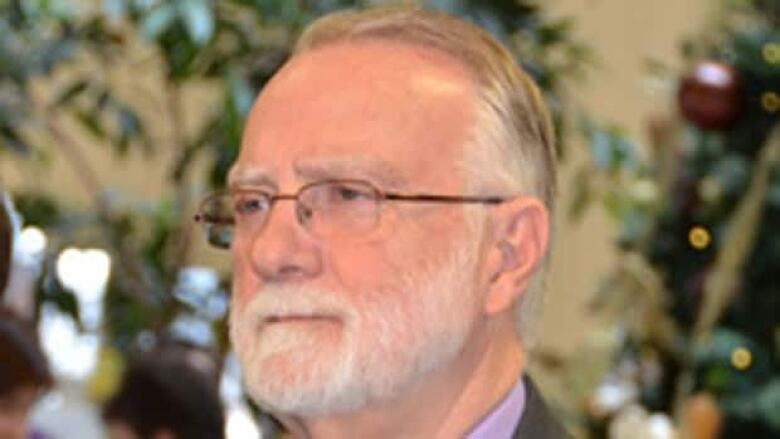Cambridge mayor wants to look at cost of cancelling LRT
Doug Craig favours bus rapid transit

Cambridge Mayor Doug Craigis wasting no time injumping back into the debate over light rail transit after a two-year hiatus, saying the Region of Waterloo should look at all its options when it comes to the $818-million project, including cancelling the project altogether.
"If we stop the LRT system now, what would the cost to the regional community be?" Mayor Doug Craig told The Morning Edition host Craig Norris on Tuesday."I think the public should know that."
'Look at what's going on in Toronto, they're just cancelling things all over the place.' Doug Craig, Cambridge mayor
While Craig called for examining the cost of the potentialcancellation of the LRT, he stopped short of providing what would constitutea reasonableprice tag,saying insteadthat he believed the region could easily opt out of its current plan in favour of something else, even though construction on light rail had already started.
"Look at what's going on in Toronto, they're just cancelling things all over the place," he said.
Two years of self-imposed silence
The comments from the outspoken politician come aftertwo yearsof silence on the debate.
Craig originally declared a conflict of interest in 2011, after seeking advice from Aird and Berlis LLP, a well-known Toronto law firm specializing in municipal law.
At the time, much of the debate swirled around the rising value of property located near the LRT route.
Lawyers with the firm advised Craig to declare the conflict of interest after his son bought a property across from the Ainslie Street station in Cambridge. But in June, Craig started an effort to get the judicial all-clear to engage in the debate once more.
That effort was rewarded Friday when the Ontario Superior Court ruled that the conflict was "so insignificant and so remote that it cannot reasonably be regarded as likely to influence."
Craig said it's beenpersonally frustrating sitting on the sidelines in a debate over the largest public transit project the region has ever seen.
"I think [Cambridge has],to some extent,been lost in the debate and the debate has really focused in the last two years strictly on Kitchener and Waterloo and the implications of rapid transit there," he said.
"I don't think [Cambridge] should be paying for something we're not getting."
Rapid buses instead of light rail
Craig said that the region isinvesting inthe wrong system and should consider cancelling light rail transit, in favour of building a system of rapid buses.
"Right now we're using the wrong system there's no question in my mind about that," he said.
"It should have started with rapid bus and it would have been a lot cheaper and certainly you could have had buses running in neighbourhoods that could have connected through into the rapid line, the dedicated line, the train system is a lot more inflexible and you have to look at it from that point of view."
Craig said he needs to get back into the debate, in order to give his constituents a proper voice in the controversy over the future of transit in Waterloo Region.
"It's about a matter of bringing Cambridge back into the debate and the implications of not getting a system and what it means to us."
"I think what the issue here is, Cambridge for the next 25 years is going to be paying for a rapid transit system it doesn't use. If in fact the rapid transit system in Kitchener-Waterloo potentiallyraises land values, I mean it really is a detriment to the City of Cambridge in terms of economic development," he said.












_(720p).jpg)


 OFFICIAL HD MUSIC VIDEO.jpg)
.jpg)



























































































